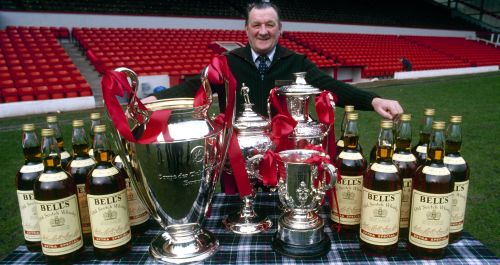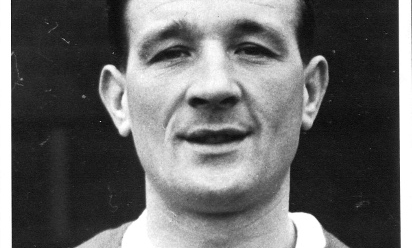On this day: Paisley joins Liverpool
On this day 76 years ago, Liverpool made what would turn out to be one of their most important signings ever...
The player they signed wasn't a glamorous winger or prolific forward, nor was he costly by any means. It was on May 8, 1939 the club agreed a deal for Bob Paisley, a wing-half who joined from amateur side Bishop Auckland for a signing-on fee of £25 and £8-a-week in wages.
Paisley would of course go on to become one of the club's most successful managers and iconic figures ever, but it all began with a young Durham lad arriving at Liverpool Exchange station to be met by some of his future teammates.
The timing of the move couldn't have been worse for a 20-year-old Paisley, as the country would have more pressing matters on its mind than football. The 1939-40 season, which would have been Paisley's first full one in a red shirt, was cancelled due the outbreak of World War II.
Before he joined the 73rd Medium Regiment of the Royal Artillery, though, and before he'd even made a senior appearance for Liverpool, the young newcomer had already made a friendship that would play a huge role in his and Liverpool's future. The Reds' club captain at the time was Matt Busby, another future managerial great, and he decided to take the young Paisley under his wing.
During the war, Paisley served as an anti-tank gunner and was involved in many of the key engagements in North Africa and Italy, even taking part in the liberation of Rome. After peace returned in 1945, professional football was gradually restarted with an unofficial north and south league and the FA Cup, and Paisley made his official debut for Liverpool in the latter on January 5, 1946 - almost seven years after he joined the club.
Once his delayed career got under way it wasn't long until he experienced glory with the Reds. Under the management of George Kay, a man Paisley credited with helping establish Liverpool's distinctive pass-and-move style, the club won the First Division title in 1946-47, the first official league campaign since the war.
The Reds' victory came by the narrowest of margins that season, as they edged past Wolves on the final day to claim the trophy. Although Paisley wasn't involved in the season's climax, over the course of the year he had proved himself an able player for Liverpool alongside the legendary Billy Liddell and striker Albert Stubbins.
The next season, he went on to become a mainstay of the team, and struck his first goal for the club against Wolves in May 1947.
Paisley's Liverpool career looked set for its greatest high yet in the 1949-50 season, after he scored the opening goal against Everton in the FA Cup semi-final. The Reds ran out 2-0 winners, obtaining local bragging rights and the right to play in a cup final at Wembley for the first time.
However, Paisley suffered heartbreak when injury saw him drop out of the team, and despite getting back to full fitness he missed out on a place in the Cup final. Liverpool lost the Wembley showpiece 2-0 to Arsenal and a dream of a first FA Cup win was again in tatters.

He became club captain the following season, but the team that had captured the league in 1947 was in decline and only narrowly avoided relegation in 1952-53, finishing 17th.
In his last season with the club before he retired in 1954, Liverpool could not stave off the drop and finished bottom of the First Division.
Despite missing six seasons of his career due to war, Paisley had managed an impressive 277 games for the club, scoring 12 goals.
At the end of his playing career Paisley could have been forgiven for dwelling on his regrets. His footballing apprenticeship and the chance to play with Busby were snatched away by war.
He won the league title in 1946-47, but this proved an early peak from which he and his teammates would descend, and of course there was Wembley heartbreak and injuries.
But it was typical of the man that, rather than worry about the fact that as a player fate often seemed to take against him, Paisley already had a future mapped out as a physiotherapist and coach. He stated himself that the knocks he received over his career, both physiological and psychological played a key role in his later success.
Paisley said: "I'd always had an interest in physiotherapy and psychology. The physio side probably stemmed from the knocks I got as a player. I found that valuable later on. It stood me in good stead. If I was pinned down I'd say that was my greatest asset. I could speak to players and give them examples of injuries and how they heal."
Those methods helped Bill Shankly rejuvenate the club in the 1960s, providing the science to complement the legendary Scot's spirit.
So, while Paisley the player may have had to deal with disappointment in his Liverpool career, it was key to him becoming such a legendary manager, coach, and ultimately one of the club's most important ever signings.



